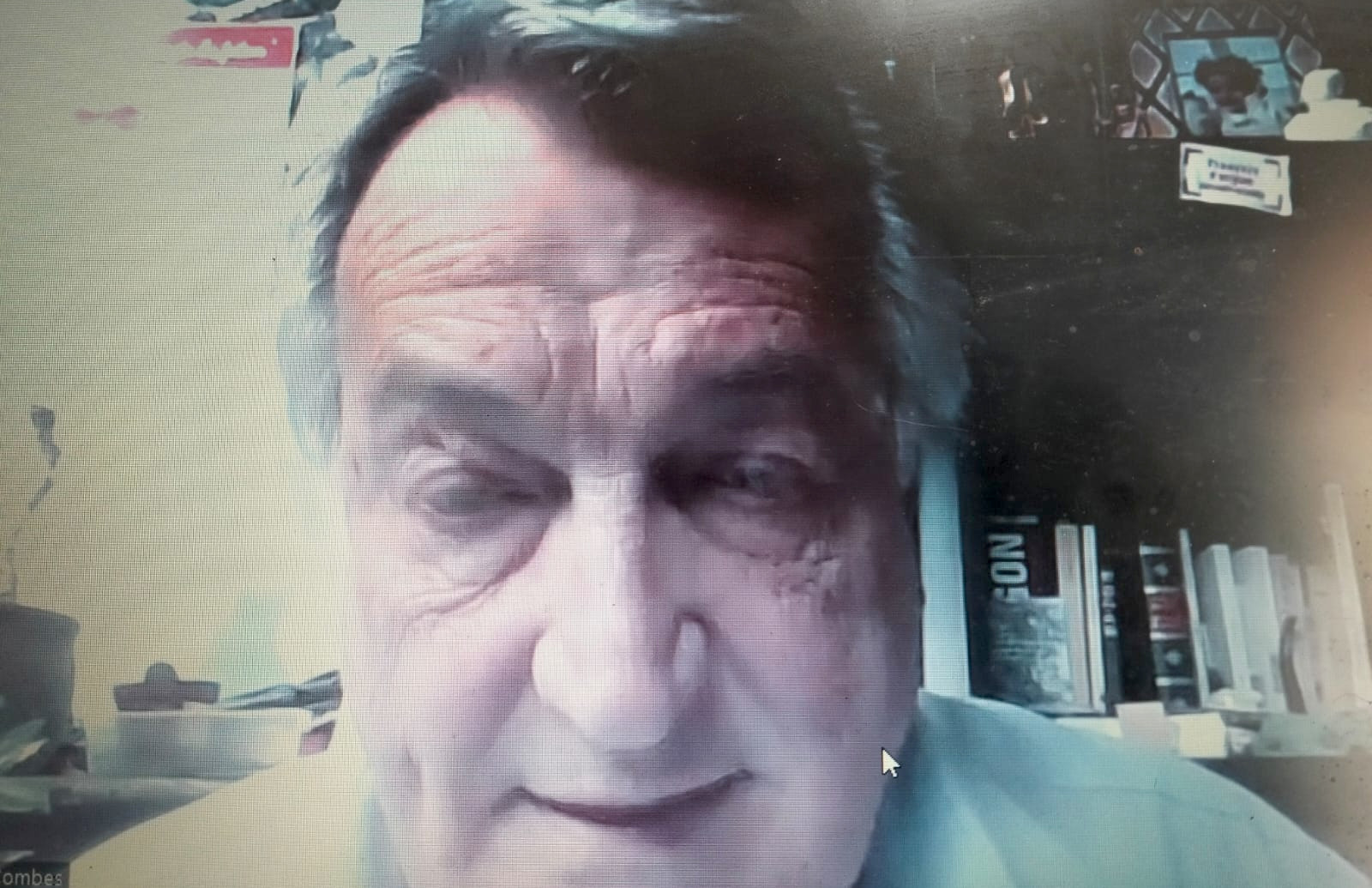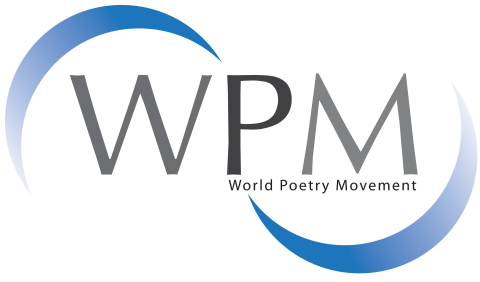Introduction to the Virtual Congress WPM Europe

Paris, March 23th, 2023
Continental Coordinator: Francis Combes.
We, the poets of Europe, live on the continent that was and still is the home of many important inventions in the history of the world and also the starting point of many wars, including two world wars. We are not unaware of Europe’s influence on human history, both good and bad.
Europe was the starting point for all the great colonial ventures to other continents, with all the consequences we know for the people. And some countries (like France) are still colonial powers. At the same time, those who wanted to free themselves from the colonial yoke (from Bolivar to Frantz Fanon, via Aimé Césaire) were able to take up the movement that emerged from the Enlightenment in Europe before the French Revolution, and they pushed it further. In the sense of a true universalism. We know that it is now up to each people to determine the ways and means of its sovereignty and cooperation with other peoples. Cooperation and union which we urgently need to face the challenges of the Planet… Poets of Europe, we are obviously in solidarity with contemporary struggles for the emancipation of men and women.
Today, our Europe, so rich in diversity and culture and so complex and contradictory, is once again prey to its old demons: nationalism, racism, xenophobia, fascism and warlike barbarism. It is not only nature that is threatened, but culture, civilisation, as we see daily…. And life on Earth, quite simply.
In this situation, what can poetry do? What can poets do? Poetry does not have the power of weapons or money, but it is essential to our lives, to life. Since ancient Greece and the myth of Orpheus, the figure of the poet has embodied the human attempt, perhaps futile but always renewed and which we cannot renounce, to save the chances of life, beauty and love, in the face of oblivion and death, the “unspeakable face of death”, as Paul Eluard said during the Resistance against Nazism. Since Aesop at least, we know that the Word can be the best or the worst of things. If it is not all-powerful, it is not without power. It can hurt and it can heal. A poem cannot stop a missile, but it can mark our consciences, our sensibilities, make us more human, in a time when it is our very humanity that is threatened. As we said in the preparatory text for the Congress: poetry “is the means of inhabiting the world, with our knowledge and our imagination. It is our way of giving life all the names, all the words it deserves. To call the world by its first name. To make this external world, sometimes foreign and hostile, an internal, intimate and welcoming world. We need poetry to hasten the emergence of a humanity that is aware of itself and its possible future. A humanity connected to itself and to its common dream. This “planetariat” that our friend Jack Hirschman called for and whose appearance he foresaw. For us, poetry is not the private property of poets. Our revolutionary idea of it is, as he said, to liberate the poet in every human being.
As poets of Europe, we are bequeathed a vast treasure, made up of the diversity of the languages and literatures of our countries. This heritage is that of a great tradition and also a contribution to modernity, which is now in turn part of the world tradition.
Are we today equal to what circumstances demand?
Probably not. That is why we need to come together and work together in the WPM.
What is the WPM? I am tempted to say: a “Poets’ International” for today’s world! Certainly not a political party. We bring together poets with very different political, social, religious, philosophical and also aesthetic and poetic ideas. And that’s fine. This diversity corresponds to the diversity of life itself. But we share the same passion for poetry, the same concern for our common life on Earth. And it is this diversity and shared passion that can make us interesting, strong and potentially effective. At present, we are present in more than forty countries and regions in Europe or linked to Europe… In the space of two years, we have made a lot of progress. But to tell the truth, WPM-Europe is often more of a nebula of individuals than an organized movement. This is probably partly due to the nature of a poets’ movement. And we certainly do not intend to turn ourselves into a bureaucratic organisation with a central command and hierarchy! But our “nebula” should be able to shine brighter, to become a small “poetic galaxy” more visible in the European sky. To do this, we need to make contact with more poets in each country and increase our public poetry activities.
There are countries where our correspondent must feel a bit lonely… In other countries, we have real circles of poets, more organized, with regular activity. We will try to help each other to move forward.
1 – Our first purpose is to encourage contacts and literary encounters between poets. This is all the more valuable because we can hardly count on the major media for this. The low profile of poetry in the media and cultural industries of most of our countries is one of the clearest indications of the lack of attention paid to a culture that is not reduced to the business of entertainment, but which cultivates the freedom of the mind and imagination. Exchanging poems and translating them is a natural reflex for us. To translate is to do something useful. But there is a real programme of translations to be set up, because, as Umberto Eco said, “the language of Europe is translation”. We must then work to make the poems we love known by all the means at our disposal: festivals, public readings, magazines, book publishing, posters, social networks, Facebook pages and so on. At a time when many want to build walls and barriers, we build bridges, fragile but precious.
2 – Secondly, we try to carry out simultaneous actions on subjects of common interest. We have taken part in various WPM global campaigns: “For a world without walls”, “A red carnation for all peoples”, solidarity actions with the peoples and poets of Colombia or Palestine, the campaign on the theme “Our World/our Home”. In Europe, we launched a very important campaign called “Global Chain of Poems for Peace” a year ago. At first there was reluctance on both sides. And not only in Europe… The points of view on the responsibilities of the conflict were necessarily different and sometimes completely opposed. Some even imagined that the war was a way to rebalance the balance of power and move towards a multipolar world. But it is increasingly clear that this butchery must end. It is the youth of Ukraine and Russia who are being slaughtered for economic and geopolitical interests of the great powers. And it is world peace that is threatened. To date, more than 200 poets have participated in this Chain (Russian, Ukrainian, Italian, French, German, Portuguese, English poets… from all over Europe, but also from North and South America, from Asia, China in particular, and from Africa as well…). And we must think together about how to give another dimension to this action of poets for peace. Perhaps we should launch a new, broader movement called “Poets for Peace”.
3 – Finally, we have begun to engage in concrete actions in defence of writers’ freedom. For several years, we have been at the initiative of the campaign to save the Palestinian poet Ashraf Fayad, first sentenced to death in Saudi Arabia, then to 8 years in prison and 800 lashes. And we can say, without boasting, that our action was decisive for his release. Similarly, we have tried to make the voices of poets prosecuted for their opinions heard. In Russia (like the young anarchist pacifist Artem Kamardyn), in Iran (the feminist poet and activist Atefeh Chaharmahalian), in Turkey (the Kurdish poet Ilhan Sami Comak, sentenced to 36 years in prison for separatism)…
And we also tried to react with our means and our words to the terrible earthquake in Turkey and Syria.
At the same time we have developed our movement, with representatives in many countries. We can welcome among us the arrival of these new coordinators. We have created regularly updated Facebook pages, such as in Scotland, France, Portugal, Greece, Spain… We have also just created a new Youtube channel, WPMPoetas, (with the help of Pedro Enriquez, from Andalusia) on which we have started to post videos. We will now have to make it live, subscribe to it and make it known. We also plan to be present on Tik Tok and Instagram, with the help of Eric Piette from Belgium. In several countries (such as France, Portugal or Turkey) we are working with publisher friends to have book collections dedicated to WPM. Finally, thanks to the action of our friend Luis Sarmento, we have the project to hold a festival and a congress in Portugal next October.
I sincerely hope that our discussions over these two days will enable us to decide, in complete autonomy, on new projects capable of arousing enthusiasm and commitment on the part of many poets in Europe. And the means to advance our poetic action. That is to say, we have a lot on our plate!

